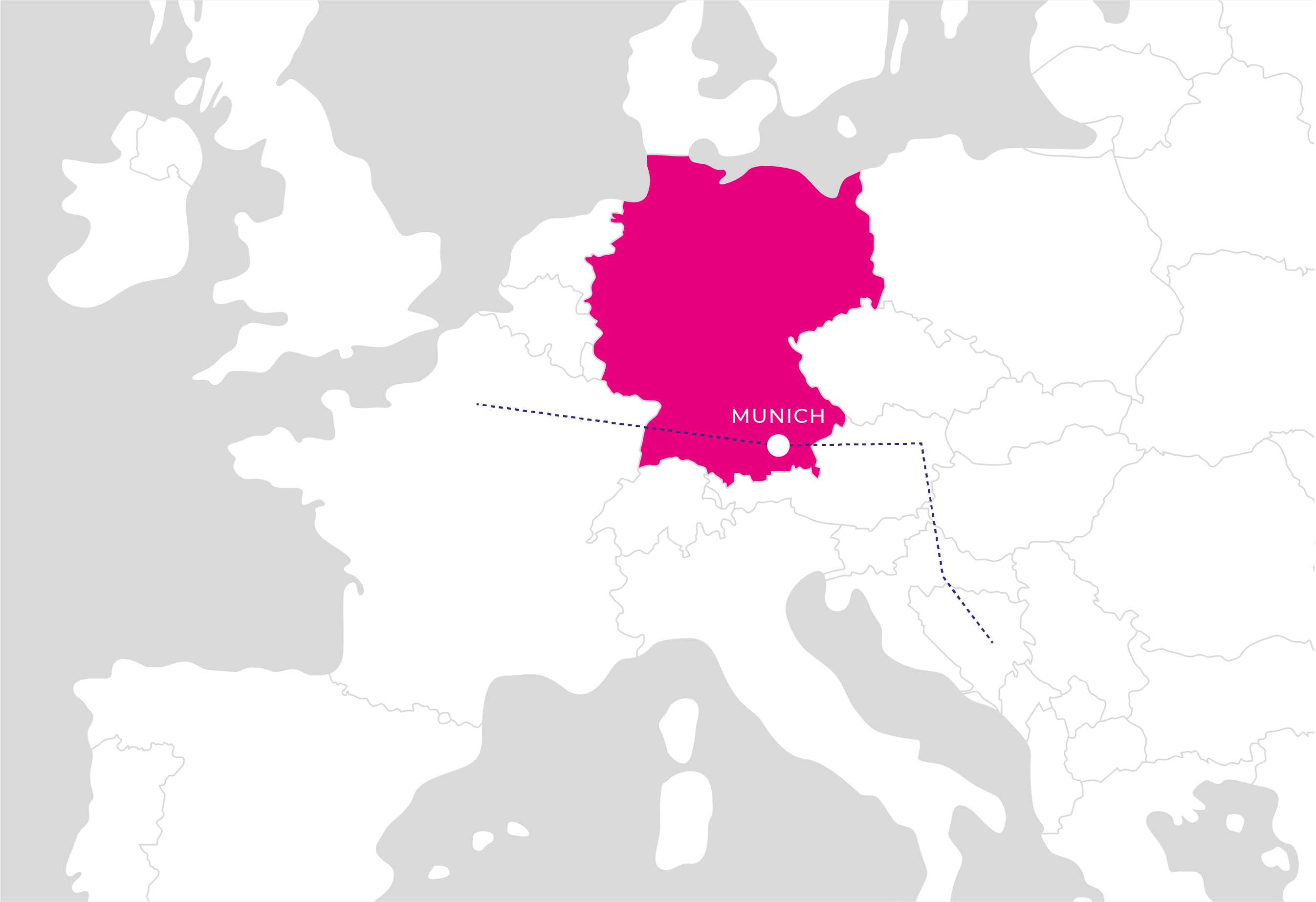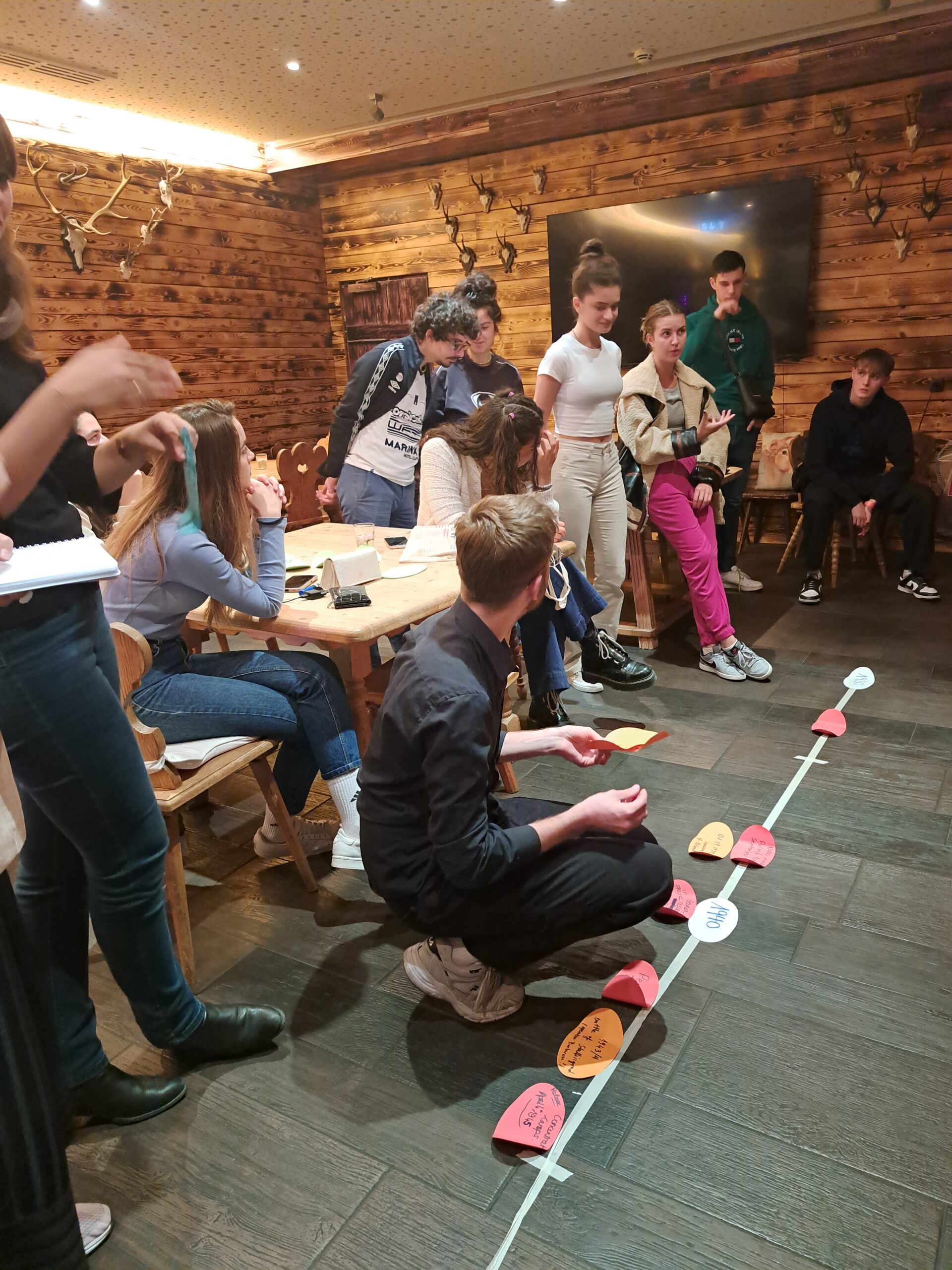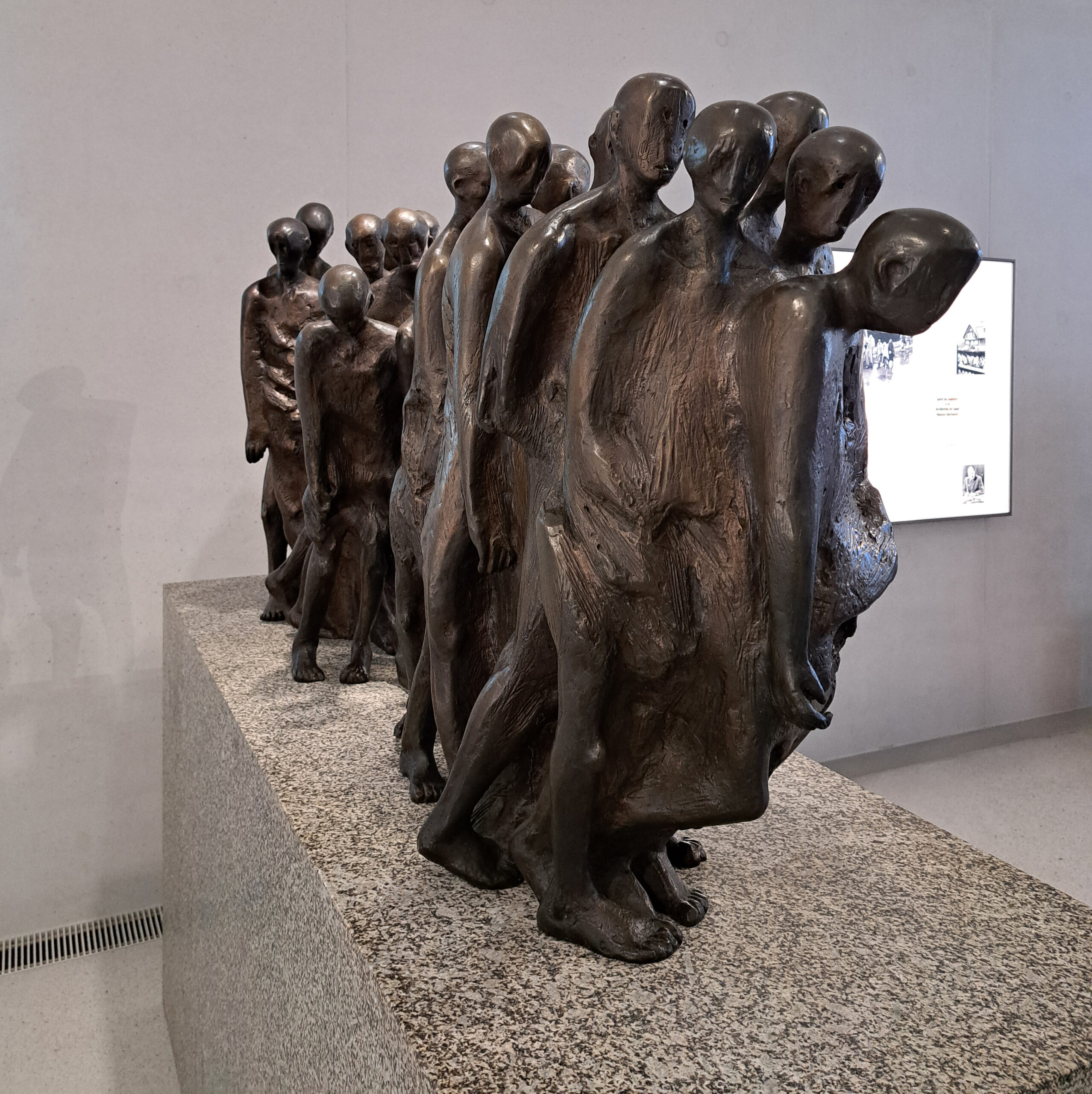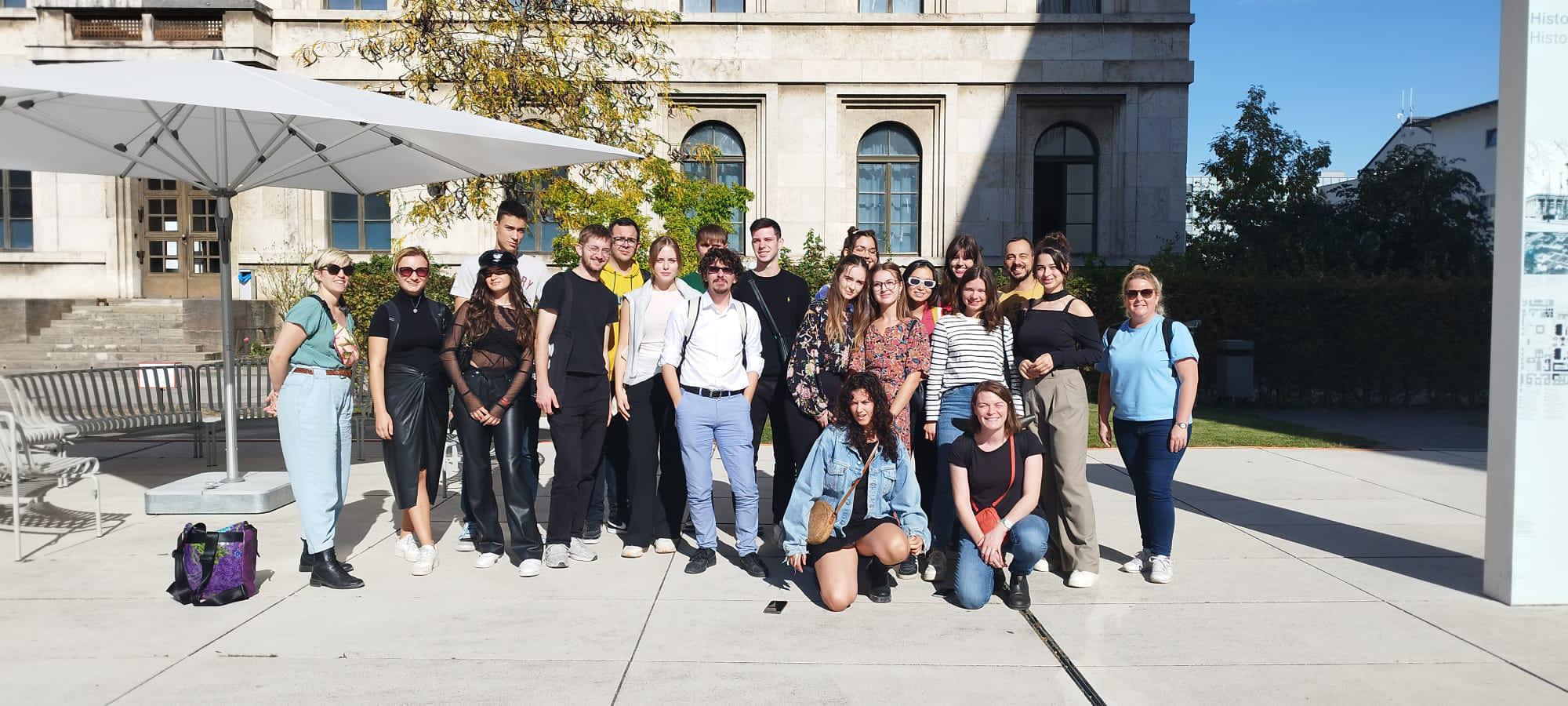Munich – 12th to 14th October 2023

PARIS
VIENNA
JASENOVAC
SARAJEVO
BERLIN
Exploring the Shadows of World War II and Cultivating Understanding
After having spent some time in Versailles and Paris talking about the First World War and visiting historical locations, we headed towards Munich and the Second World War, to continue our journey through Europe and history. We arrived there on the fourth day of our itinerary to understand the particular place that Munich holds in the narrative of the Second World War.
Immediately following the First World War, this city saw the early stages of the wave of fascism that would set Europe on fire. It was there that the “German Workers’ Party” (Deutsche Arbeiterpartei, or DAP) began, which Hitler joined and then took control of. It soon became the “National Socialist Party of German Workers” (Nationalsozialistische Deutsche Arbeiterpartei, or NSDAP), and in 1923, buoyed by the success of his party among the wealthiest and high-ranking military officers, Hitler attempted a putsch, in order to seize power in the Bavarian capital and ultimately march on Berlin and overthrow the government there. This failed attempt did not stand in the way of his rise – quite the opposite. After serving only a third of his sentence in prison, a time he used to theorise and structure his ideology in Mein Kampf, he came back stronger, well-connected and with even more support in Munich and the rest of Bavaria. Munich was the nerve centre of Hitler’s access to power, media, and financial support.
This is a history that the city has found difficult to acknowledge. This is why it was so important as a part of our journey to walk through Munich and its past, to understand what happened there and why, and to learn about the weight of history, the importance of places of remembrance, and how to inform new generations.

The group making a collective timeline about the Second World War.

Photo of the exhibition at the Munich Documentation Center for the History of National Socialism
Learning history
The Munich Documentation Center was a milestone for the French, German and Bosnian participants and their knowledge of this part of German history. After a few hours spent in the centre, going through the exhibitions, testimonies, photographs, personal letters, official documents, propaganda posters and newspapers of that time, the participants gathered to give their feedback. They were surprised to learn about Munich’s role in the Second World War, moved by the testimonies, interested in the German resistance and those involved in it; they learned about the place in society that National Socialism afforded to women, and they appreciated the diversity of the information and their sources. This feedback session was also an opportunity for them to share their feelings.
Social and intercultural experiences
The second part of our stay in Munich consisted of meeting the theatre group “Time Busters”, of the Theaterlabor Neuperlach. While we had approached history in France and at the Munich Documentation Center through documents, books and monuments, the meeting with the Time Busters served to get in touch with history on an emotional level. The Theaterlabor Neuperlach is a branch of the Münchner Kammerspiele, a venue outside the city centre dedicated to creation, experience, and connecting artists, neighbours and youth through the performing arts. Thanks to the support of the EVZ Foundation, Time Busters, a group of teenagers, created a play based on stories from the past, where wars have taken place and families have fled to survive, starting from scratch in a new country. All participants had family stories from various countries that different generations had left for different reasons. The play was inspired by personal stories, told by family members.
The idea here was to meet and converse with the young creators of the play, as well as the two people who supported them. The goal was also to step into history with them, to get closer to each other, to understand how important it was for them to talk about the experience of their parents or grandparents, and how war affected them – a generation living in a country that has been at peace for almost 80 years.
To conclude the day’s programme, the group went to see the play “Ха́та” by Kamilė Gudmonaitė, which is “a musical and dance balancing act with Ukrainians (Part I) and Russians (Part II) from Munich”. It brings people from Ukraine and from Russia on stage and on screen at different moments, mixing testimonies from people who have lived the current war with dance, choreography and songs. It was a very powerful moment and a dive into the lives and troubles of people experiencing an actual war very close to home. At the end of the play, the participants were very moved, hesitating between silence to digest all the information and emotions of the day, and the will to analyse and express their feelings.

Independent cultural discoveries
Last but not least, Munich was also an opportunity to bring the participants of our traveling group closer together. It was a chance to explore together, to visit and discover the city’s streets, shops and food, and to help each other out, especially those who did not speak the local language. It was a perfect time to explain fun facts of German culture, have coffee (or party) and ask questions to help better understand each other and other perspectives. The fact that participants had to organise themselves to grab a bite, take public transport and be on time to meet with the team created many opportunities to bond and interact.
So called “informal time”, i.e. time where nothing is scheduled in the programme, is essential for youth exchanges such as this one. It gives participants the freedom to meet on another level, through affinities, common interests and/or similar needs. They feel free to do what they want to, to offer what they know could be interesting for others, and to take initiative. There is no pressure to hang out together, while both allowing them to have time for themselves and bringing them together, ideally mixing the linguistic groups.
After two very rich days in Munich, we headed to another Second World War player – Austria – to learn about its historical perspective and discover its places of remembrance. We then headed east, getting closer to our final destination, Sarajevo.
Author: Morgane Quatremarre Bonnel